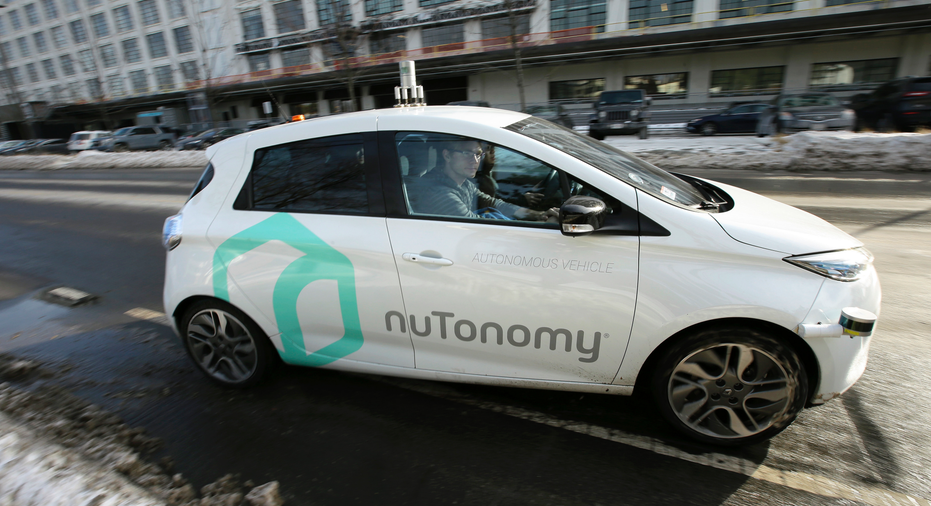Correction: Self-Driving Cars Report story

BOSTON – In a story Oct. 17 about a Boston self-driving car study, The Associated Press reported erroneously that a computer simulation showed that the advent of self-driving cars would likely add vehicles to the roads. The analysis showed that while vehicles would travel longer distances, there would be fewer of them on roads.
A corrected version of the story is below:
Self-driving cars could ease traffic, but increase sprawl
A new study inspired by Boston's early experiments with self-driving cars finds that the technology could ease congestion, but also lead to more cars on the road and further encourage urban sprawl
By MATT O'BRIEN
AP Technology Writer
BOSTON (AP) — A new study inspired by Boston's early experiments with self-driving cars finds that the technology could ease congestion, but might also lead to more cars on the road and further encourage urban sprawl.
The report, released Tuesday by the Boston Consulting Group and the World Economic Forum, is a mostly optimistic take on how autonomous vehicles could change cities.
Three companies are now testing self-driving cars in Boston's Seaport District. One of them, NuTonomy, has also partnered with ride-hailing service Lyft to research how passengers book and route a self-driving car.
The consulting group's study included a computer simulation of how downtown Boston traffic would change with the advent of self-driving taxis, buses or private cars. Vehicles would likely travel for longer distances, but there would be fewer of them on the road; simulated autonomy also reduced traffic time and cut pollution because of smoother driving patterns, such as steadier speeds and more gradual braking. At the same time, the efficiency and convenience of autonomous technology could encourage more people to live in the suburbs.
"Urban sprawl is definitely one of the biggest challenges," said Nikolaus Lang, a co-author of the study. "If people don't really see commutes as a painful exercise, they might tend to live further away."
The research adds to another study published this month by researchers at the University of California, Davis, who found users of ride-hailing services such as Uber and Lyft are less likely to use public transit. The Davis study — which looked at Boston and six other metropolitan regions — says that the trend away from public transit could have broader implications once autonomous vehicle technology becomes commercially viable and a feature of ride-hailing apps.
All of this raises questions for city planners, said Nigel Jacob, co-chair of Boston's Office of New Urban Mechanics, which has partnered with the consulting group and autonomous car developers as part of a long-term plan to improve transportation safety and equity.
"All these companies are going to make money off the public infrastructure without actually paying back into it," Jacob said.
In the meantime, Jacob said the city is working to help companies as they try to understand the future market for self-driving vehicles, as well as the technical challenges of navigating the city's "old, bizarre roadway system that's constantly subject to freezing and thawing."
"If you can pass the Boston test, you can drive anywhere," Jacob said. "That's basically been the idea."



















